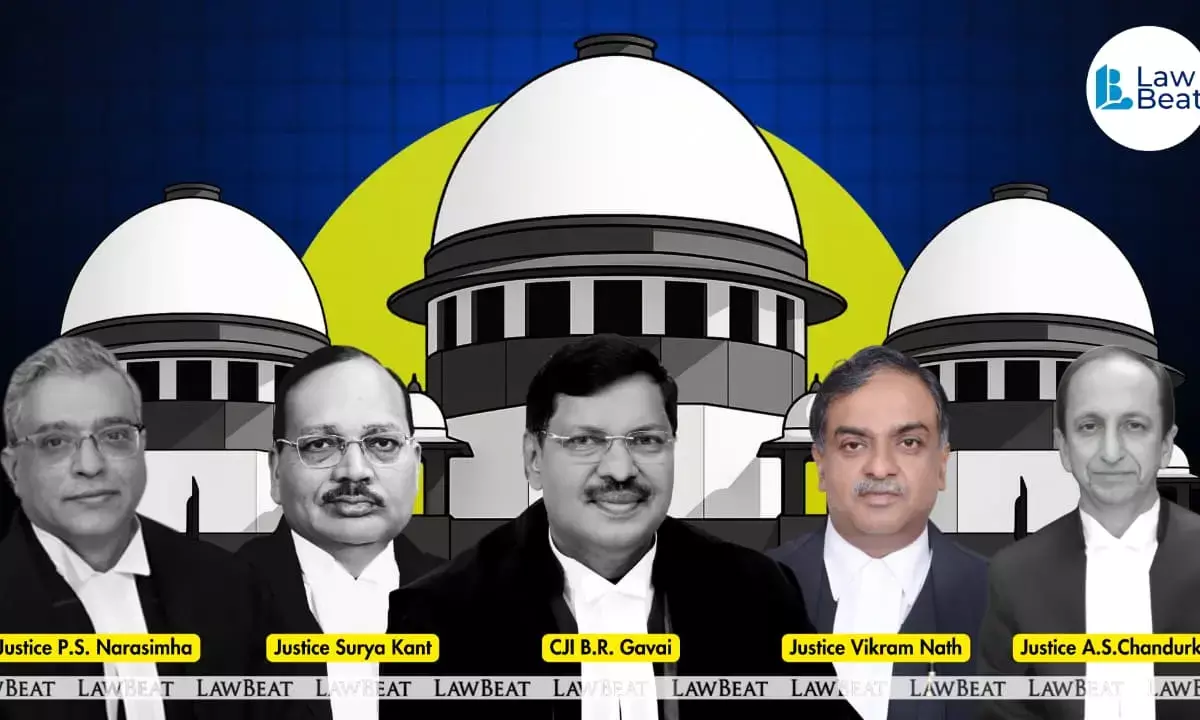Presidential Reference: Why The Centre Won In Supreme Court

Supreme Court today delivered a unanimous decision in a special reference case.
The Supreme Court today has delivered a unanimous decision favoring the executive in a special reference case which was registered on July 19 by the court's own motion after President Droupadi Murmu had framed 14 questions seeking an opinion from the Supreme Court on issues regarding grant of assent on Bills by the President of India and Governors of states.
Notably, a five-judge bench has set aside its decision from April 8, 2025, wherein a division bench had laid down structured timelines: one month for Governors under Article 200 and three months for the President under Article 201. It has said that the decision led to usurpation of powers of governor or president and was thus antithetical to the spirit of the Constitution and the doctrine of separation of powers
Supreme Court of India's bench comprising CJI BR Gavai, Justices Surya Kant, Vikram Nath, PS Narasimha and AS Chandurkar had on July 22 issued notice to the Union of India and all the state governments in a special reference case which was registered by the court's own motion titled, "IN RE : ASSENT, WITHHOLDING OR RESERVATION OF BILLS BY THE GOVERNOR AND THE PRESIDENT OF INDIA vs.".
In the judgment, the constitution bench has concluded thus:
1. The Governor has three constitutional options before him, under Article 200, namely - to assent, reserve the Bill for the consideration of the President, or withhold assent and return the Bill to the Legislature with comments. The first proviso to Article 200 is bound to the substantive part of the provision, and restricts the existing options, rather than offering a fourth option. Pertinently, the third option – to withhold assent and return with comments – is only available to the Governor when it is not a Money Bill.
2. The Governor enjoys discretion in choosing from these three constitutional options and is not bound by the aid and advice of the Council of Ministers, while exercising his function under Article 200.
3. The discharge of the Governor’s function under Article 200, is not justiciable. The Court cannot enter into a merits review of the decision so taken. However, in glaring circumstances of inaction that is prolonged, unexplained, and indefinite – the Court can issue a limited mandamus for the Governor to discharge his function under Article 200 within a reasonable time period, without making any observations on the merits of the exercise of his discretion.
4. Article 361 of the Constitution is an absolute bar on judicial review in relation to personally subjecting the Governor to judicial proceedings. However, it cannot be relied upon to negate the limited scope of judicial review that this Court is empowered to exercise in situations of prolonged inaction by the Governor under Article 200. It is clarified that while the Governor continues to enjoy personal immunity, the constitutional office of the Governor is subject to the jurisdiction of this court.
5. In the absence of constitutionally prescribed time limits, and the manner of exercise of power by the Governor, it would not be appropriate for this Court to judicially prescribe timelines for the exercise of powers under Article 200.
6. For similar reasoning as held with respect to the Governor, the President’s assent under Article 201 too, is not justiciable. For the same reasons as indicated in the context of the Governor under Article 200, it is clarified that the President, too, cannot be bound by judicially prescribed timelines in the discharge of functions under Article 201.
7. In our constitutional scheme, the President is not required to seek advice of this Court by way of reference under Article 143, every time a Governor reserves a Bill for the President’s assent. The subjective satisfaction of the President is sufficient. If there is a lack of clarity, or the President so requires advice of this Court on a Bill, it may be referred under Article 143, as it has been done on numerous previous occasions.
8. The decisions of the Governor and President under Articles 200 and 201 respectively, are not justiciable at a stage anterior into the law coming into force. It is impermissible for the Courts to undertake judicial adjudication over the contents of a Bill, in any manner, before it becomes law. Pertinently, discharge of its role under Article 143, does not constitute ‘judicial adjudication’.
9. The exercise of constitutional powers and the orders of the President/Governor cannot be substituted in any manner under Article 142, and we hereby clarify that the Constitution, specifically Article 142 even, does not allow for the concept of ‘deemed assent’ of Bills.
Case Title: In Re: Assent, Withholding or Reservation of Bills by the Governor and the President of India
Case Number: Special Reference Case No. 1 of 2025
Bench: CJI BR Gavai, Justices Surya Kant, Vikram Nath, PS Narasimha and AS Chandurkar
Judgment Date: November 20, 2025
